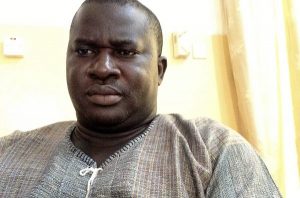By Njundu Drammeh
We can disagree without being disagreeable. Tolerance to dissenting opinion is a key characteristic of democracy and the democratic man. It is respect, not accept, the contrary view. It is to challenge it with one’s opinion, which each is entitled to. In the market place of idea.

Dr. Ismaila Ceesay has every right to suggest that the minimum academic requirement to become the President of the Gambia, moving forward, should be a university degree. That is his opinion; not necessarily a fact, not necessarily that it must be stipulated in our laws willy nilly. We can disagree with; we can suggest our own minimum academic standard and give or not give reasons for our opinion. We are entitled to disagree, to give our opinion. But, when we go on to cast aspersions on his name and dignity, to call into question his academic qualifications, to call him names, to question his sincerity and love for the Gambia, to literally insult him, we move beyond the social pale, we behave undemocratic, we exhibit intolerance. Such a position is not longer a ” speaking” of one’s opinions; it is character assassination; it is defamation or libel. No one can entitled to such a behaviour. It is undemocratic. The Democratic man or women would tell Dr. Ceesay, “I disprove of what you say, but i will defend to my death your right to say it” Voltaire.
My dearest friend and brother, Almami Fanding Taal, the UDP Spokesperson, also said in one of his interviews that the academic bar should be raised to university degree as minimum standard. Except for few people whose contrary opinions I read, it generally passed unchallenged. He wasn’t subject to the uncharitable vitriolic that Dr. Ceesay is facing. Yet, the two academics basically proffered the same standard. I am not suggesting Mr. Taal should have been attacked for his opinion; rather am just bewildered by the unwarranted virulent and scathing knocks Dr. Ceesay is enduring.
Now, I disagree with Dr. Ceesay on this first degree minimum standard, just as I disagree with my partner in crime’ s take, Madi Jobarteh. I still think that the possession of Grade 12 certificate as minimum academic standard that our President must possess, among many other qualifications, will continue to make the presidency open to most of us. While the Presidency is the highest political office of the land, it is not the highest academic office or post. That still lies in the world of academia and strict conditions apply there in.
The presidency is a political office, and one mostly filled by a presidential candidate of a political party which wins the most votes in an elections, directly or indirectly. Here, at the party level, is where I think great work must be done, great store set by who becomes the presidential candidate and what academic and leadership qualities must be possessed, how seasoned and what political coaching and growth the chosen candidate has undergone. Parties give us the President and parties must ensure not just the minimum legal requirements are met but that they give us the best of their best. Granted that often these candidates are chosen through primaries and one who garners the most votes, I think political parties can still tighten their criteria. I would put premium on longevity in a party, leadership roles held and played, drive and commitment and knowledge of governance. Anyone effectively groomed and coached for leadership in a serious political party will be well prepared to become a President. A serious political party regards itself as a “Government in waiting”, gets a shadow cabinet or government and prepares its members for leadership. Such a political party hits the ground running when elected into office.
Legally setting a university degree as minimum academic standard that our President must possess is “elitist” in my view. It is “oligarchic” in practice, the belief that “Government by and of the people” is a fallacy. Otherwise, why should we insist that power to rule, to be the most politically powerful in The Gambia must be enjoyed only by a minority of the people, possessors of a university degree? That only those with higher abilities and trained through the university rigours are suitable to rule? That is undemocratic, elitist in every way.
Leadership must be distinguished from academic achievement. Leadership is not positional, titular, expertise, educational. Otherwise, university professors would make the best presidents, best leaders. There are set of qualities we look for in a leader- vision, character, integrity, drive, commitment, ability to influence, foresight, exemplary, etc. Educated derelict abound.
Standards and criteria we must set for whatever post we have. They must not be set to arbitrarily exclude others. And yes, there are political posts which require political qualifications and administrative and technical posts which require technical qualifications. The two are different in their nature and requirement.
Regardless, I respect the suggestions of Messrs Taal, Ceesay and Jobarteh. I just disagree. We are all entitled to our opinions.
